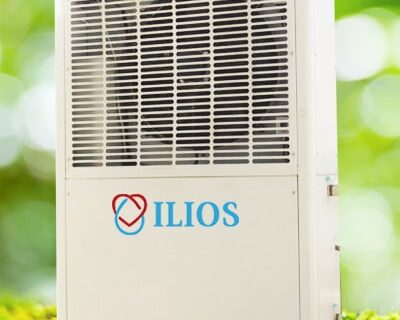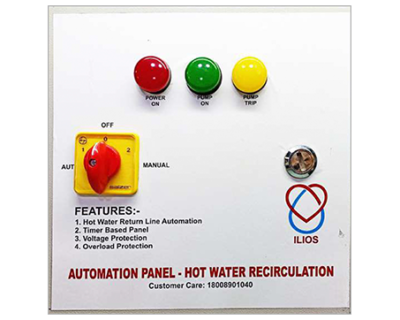Blog

Revolutionizing Your Home: The Latest Technology in Water Heating
Water heating technology has come a long way from the days of simple wood-burning stoves and basic heaters. Today, new advancements have made heating water more convenient, energy-efficient, and eco-friendly. Whether you’re upgrading your home’s system or just curious about the latest trends, understanding these technologies can help you make smart choices. This blog will explore the key advancements in technology in water heating, focusing on how they improve efficiency, save money, and help the environment.
Tankless Water Heaters
One of the biggest improvements in technology in water heating technology is the tankless water heater. Unlike traditional water heaters that store a large amount of water in a tank and keep it hot all the time, tankless water heaters heat water only when you need it. This makes them very efficient.
Advantages:
Energy Efficiency: They use less energy because they don’t have to keep a tank of water hot all the time.
Endless Hot Water: As long as the unit is working, you have a continuous supply of hot water.
Space-Saving: They are small and can be installed in tight spaces.
Disadvantages:
Initial Cost: They can be more expensive to buy and install than traditional models.
Flow Rate: Sometimes, the flow rate can be limited, affecting the ability to use hot water in multiple places at once.
Heat Pump Water Heaters
Heat pump water heaters are another great development in technology in water heating. These systems transfer heat from the air or ground to heat the water, instead of generating heat directly.
Advantages:
High Efficiency: They use electricity to move heat rather than create it, making them 2-3 times more efficient than regular electric water heaters.
Disadvantages:
Installation: They can be more complex to install and need specific conditions to work well.
Initial Investment: They cost more upfront compared to traditional water heaters.
Solar Water Heaters
Using the power of the sun, solar water heaters are a green option that is becoming more popular. These systems use solar panels to collect energy from the sun and heat the water.
Advantages:
Renewable Energy: Uses free and abundant solar energy.
Lower Utility Bills: Once installed, the operating costs are very low.
Disadvantages:
Weather Dependent: Efficiency can drop on cloudy days and in less sunny areas.
Space Requirement: Solar panels need enough space on the roof or property.
Smart Water Heaters
In the age of smart homes,technology in water heating has also become smarter. Smart water heaters can be controlled via smartphone apps, allowing users to monitor and adjust settings remotely.
Advantages:
Convenience: Control and monitor your water heater from anywhere.
Energy Management: Optimize energy use by scheduling heating times and checking energy consumption.
Disadvantages:
Complexity: More features can mean a learning curve.
Security: Any device connected to the internet can be vulnerable to hacking.
Condensing Water Heaters
Condensing water heaters are designed to be more efficient than traditional models by using the heat from exhaust gases. This technology captures and reuses the heat that would otherwise be wasted.
Advantages:
Higher Efficiency: Reuses heat from exhaust gases, making it more efficient.
Lower Energy Bills: Reduced energy use leads to cost savings.
Disadvantages:
Initial Cost: Typically more expensive to buy and install.
Maintenance: Can need more upkeep due to the complexity of the system.
Hybrid Water Heaters
Hybrid water heaters combine the best features of traditional tank-style heaters and modern heat pump technology. They can switch between different heating modes depending on the demand and conditions.
Advantages:
Efficiency: Can be up to three times more efficient than standard electric water heaters.
Flexibility: Can switch between heat pump mode and standard electric heating.
Disadvantages:
Cost: Higher initial investment compared to traditional water heaters.
Space: Needs more installation space due to the heat pump component.
Choosing the Right Water Heater
When picking a water heater, consider your specific needs and circumstances. Factors like the size of your household, local climate, and available space will influence the best choice for you.
Benefits of Advanced Technology in water heating
Investing in advanced Technology in water heating offers several benefits:
Energy Savings: Modern systems are more energy-efficient, reducing your utility bills.
Environmental Impact: Lower energy use means a smaller carbon footprint.
Convenience: Features like smart controls and on-demand heating provide greater comfort and ease.
Long-Term Savings: While some systems cost more initially, they often pay for themselves over time through energy savings.
Conclusion
The evolution of water heating technology has greatly improved the way we heat water in our homes. From tankless systems to smart water heaters, these innovations offer better efficiency, convenience, and sustainability. By understanding the latest advancements in water heating technology, you can choose the best system for your home and enjoy the benefits of modern, efficient, and eco-friendly water heating solutions.




